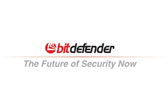|
|
|
|

|
Bitdefender Issues “Facebook Hacker” Malware Alert
Published Aug 24, 2010
|
BitDefender, an award-winning provider of innovative anti-malware security solutions in over 100 countries across the world, has issued a malware alert to all Facebook users about a new cyber attack tool called “facebook Hacker” which enables cybercriminals with stealing usernames and passwords from various user accounts. The do-it-yourself kit helps the ill-intentioned wrong-doer in stealing login credentials from the targeted user without the user even typing in any login information.
The kit is intuitive and hence extremely easy to configure, just like any do-it yourself hack tool designed with the "skiddie" in mind.
There are only two fields that need filling in:
A disposable e-mail and a password that will eventually constitute the location where the stolen information is to be delivered to. After clicking the "build" button, a server.exe file is created and deposited into the "facebook Hacker" folder along with the initial files. This server.exe file is to be sent to the intended victims.
Once run, the malicious tool will snatch the victim's Facebook account credentials, along with all the usernames and passwords that users carelessly ask the browser to remember. This occurs as 'facebook Hacker' also targets the Internet browser and Instant Messengers used by clients to pick up the entire list of "remembered" identification data.
In order to successfully collect passwords, the malicious binary includes applications able to squeeze data out of the most popular browsers on the market, as well as of almost all instant messaging clients available. To add insult to injury, the application also enumerates all dialup/VPN entries on the computer and displays their logon details: User Name, Password, and Domain.
To avoid detection, the facebook Hacker will also look for all the processes related to a security suite and kill them upon detection. It is important to mention that it is accessorized with a hard-coded list of processes associated with AV solutions that are to be checked and stopped, if found. Last but not the least, the piece of malware looks for network monitoring applications and terminates them. This is a safety measure that will prevent curious users from seeing their passwords leave the system.
As it can be seen, the author took a lot of time to think of various elements that could interfere with the smooth operation of this tool and to eliminate them one by one.
BitDefender has identified this threat as Trojan.Generic.3576478. In order to stay safe, BitDefender has advised users to ensure that they are running a frequently updated antivirus utility and to never run files that are received as attachments or via IM, or at least, scan them before running.
BitDefender is now also offering an innovative online virus scanner:
BitDefender QuickScan. This is the quickest way to find out if your computer is infected because it combines intelligent local and in-the-cloud scanning into an advanced online tool which detects in less than 60 seconds the e-threats in memory.
Based on award-winning BitDefender anti-malware technologies, BitDefender Quick Scan runs online on any Internet connected PC without slowing down the machine and detects any running malware, hidden threats and keyloggers, without the need to install any software, update virus signature files or perform any configuration tasks.
For more information:
Farah Ibrahim
TRACCS
T: +9714 3672530
Posted by
VMD - [Virtual Marketing Department]
|
|
|

